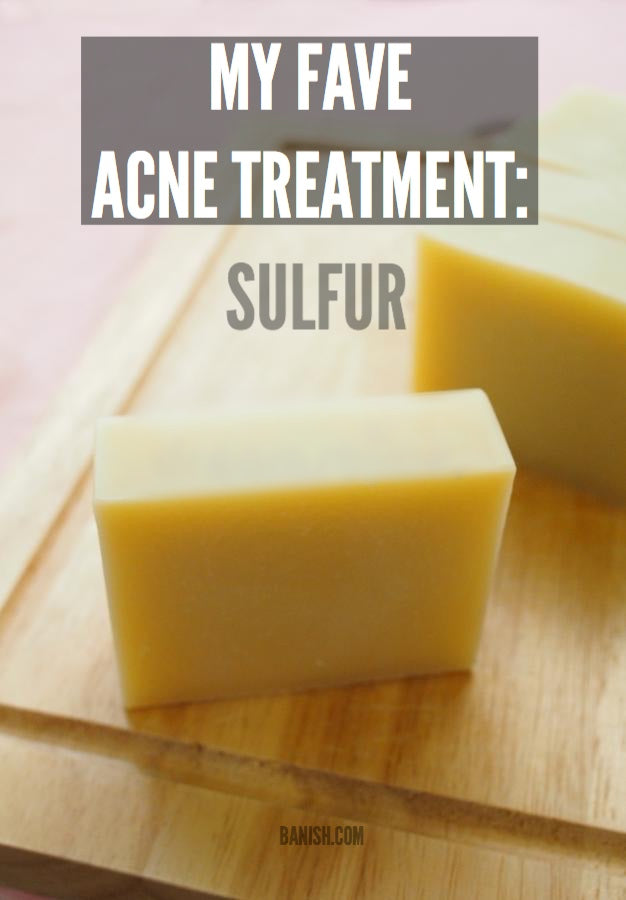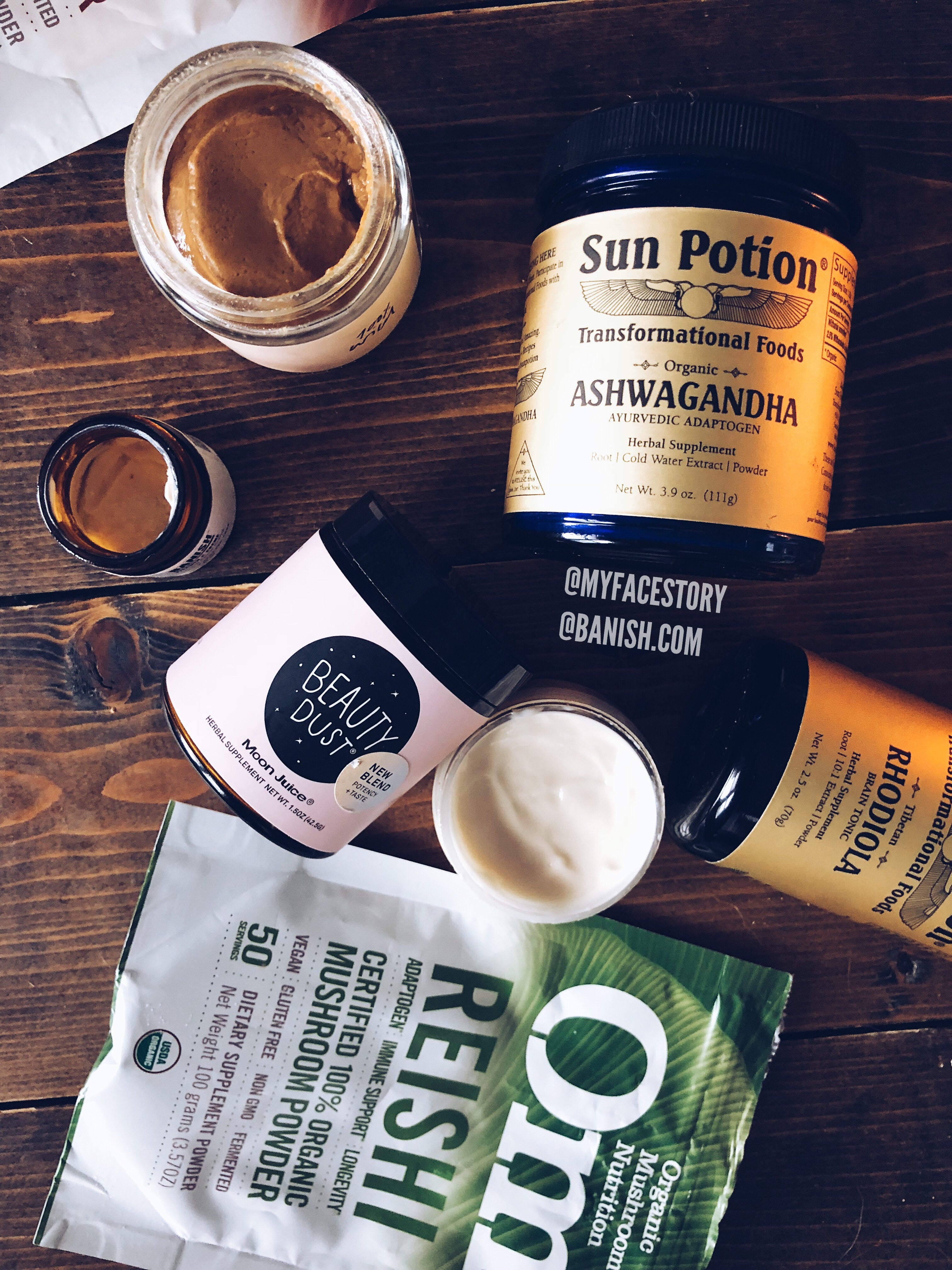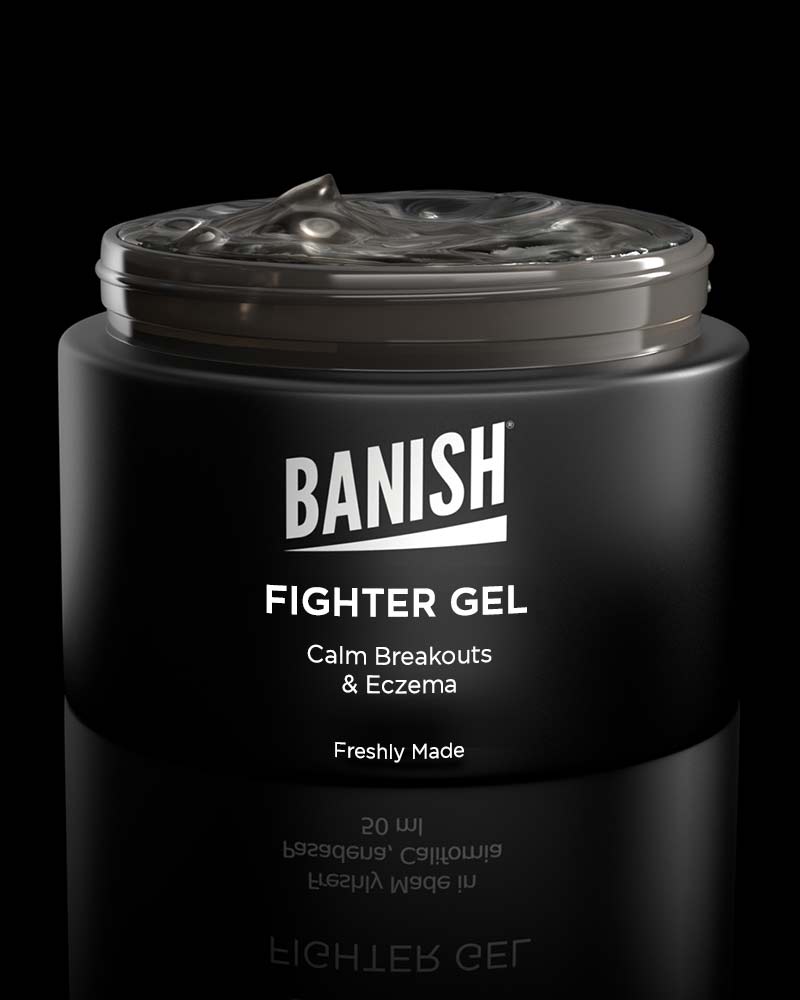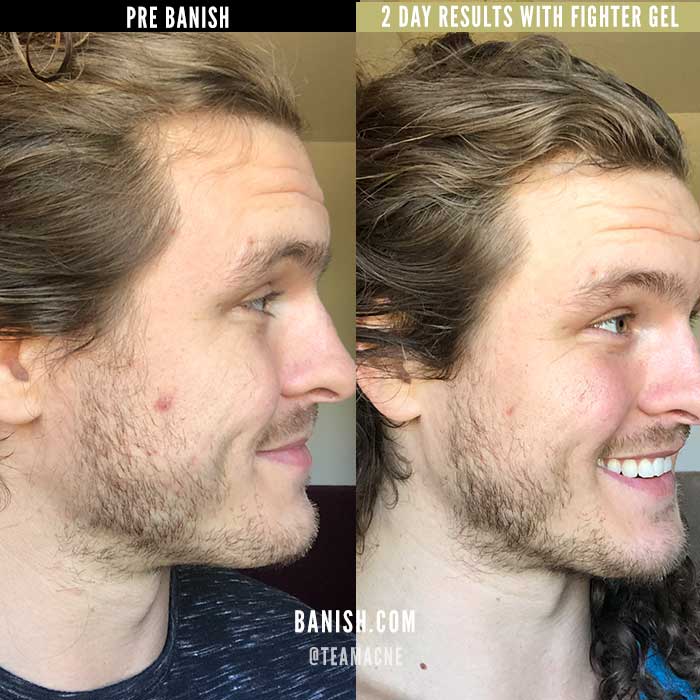I came across the idea to try sulfur as an acne treatment at a time when nothing else was working to clear up my breakouts. The usual treatments weren’t helping, and I was at my wit’s end with my skin.
As someone with acne and sensitive skin, I’m always hesitant to try new things, but during this particularly bad flare-up, I was willing to try almost anything for some relief.
Sulfur ended up being just what I needed to get through that resistant breakout, and it works so effectively as an acne treatment that I’ve been using it ever since.
REMEMBER SULFUR IN SCIENCE CLASS?
Sulfur is an element found in the universe in abundance. It’s been used for centuries to help treat a variety of medical issues and skin conditions, including acne.
But what makes sulfur a good acne treatment?
Despite a lack of substantial evidence of its efficacy (which certainly hasn’t affected its popularity as an acne treatment), sulfur appears to work in a variety of ways: by absorbing excess oil and drying out dead skin cells to keep pores unblocked, and as a mild antimicrobial, killing potentially acne-causing bacteria.
As if fighting several of the acne-causing pathways isn’t enough reason to love sulfur, here are a few more:
1. IT'S A VERY GENTLE ACNE TREATMENT
I love using sulfur as an acne treatment because it’s gentler than my regular benzoyl peroxide and salicylic acid products.
Not only does my skin feel less tight and dry with sulfur, but it also doesn’t cause the same amount of irritation or flaking, either.
This means that if your skin is sensitive even to the lower concentrations of typical acne treatment, sulfur might be a good option for you.
However, this doesn’t mean that excessive or improper use of sulfur isn’t damaging to your skin – sulfur can still cause dryness and irritation.
2. IT DOESN'T JUST KILL BACTERIA
Some of us unlucky souls have both bacterial and fungal acne. Because sulfur is an anti-fungal, it also helps to keep pesky folliculitis (or “fungal acne”) at bay.
This is one of the top reasons that I keep sulfur as a regular in my routine. As a frequent gym-goer with skin prone to microbial infections, sulfur helps prevent flare-ups from getting out of control and re-occurring.
3. SULFUR CAN HELP WITH POST-ACNE MARKS TOO
Turns out sulfur can reduce the appearance of hyperpigmentation and skin damage post-acne, too. Because of its ability to slough away dead skin cells, sulfur makes a good scar treatment in addition to good acne treatment.
4. NEED ANOTHER REASON TO AVOID ANTIBIOTICS?
Sure, antibiotics may be effective short-term, but they often cause other problems, like bacterial resistance. Antibiotic resistance is one of the world’s most pressing health concerns, so anything we can do to limit our antibiotic use is in everyone’s best interest.
Unlike antibiotics, topical antimicrobials like sulfur don’t contribute to microbial resistance, so you won’t have to worry.
SULFUR ACNE TREATMENT PRODUCTS
There are a lot of sulfur acne treatment products out there to choose from – all offering unique options for unique skin types. Some products are formulated better than others, so I’ve listed a few of my favorites below.
CLEANSER
Sulfur cleansers are popular, and best suited for those with oily skin types.
My personal preference is for wash-off products like cleansers. The smell doesn’t linger as long, and the product is less likely to cause any irritation.

The product I use and swear by for my skin is The Grandpa Soap Co. Thylox Face & Body Soap Bar. On the downside, products like this sulfur cleanser can be overly drying for some people, which may be a reason to opt for a different method of application.
SPOT TREATMENT
Sulfur spot treatments are great for people with dry and sensitive skin types, or for those who find sulfur too strong for all-over application. With spot treatment, only the affected areas are treated, so you don’t have to run the risk of drying or irritating the rest of your skin.

I, like most people who have tried it, love the Mario Badescu Drying Lotion, which contains a combination of acne-fighting ingredients like salicylic acid and sulfur to create a really powerful spot treatment. However, it also contains skin-calming ingredients like calamine, making it suitable for all skin types.
MASK
Similar to spot treatment, but rinsed off after a period of time, sulfur masks can be surprisingly effective as an acne treatment.

Earth’s Care Acne Treatment Mask is a gentle option for all skin types but should be used sparingly, up to twice a week. Even though you can use the mask all-over, it’s best to stick to affected areas to reduce irritation.
PRESCRIPTION CREAM
If sulfur really works for you, but you need something a little stronger than what you can get over-the-counter, there are prescription options available.

A prescription-strength sulfur acne treatment is almost always combined with sodium sulfacetamide, which also helps to inhibit acne-causing bacteria, and provides inflammatory relief as well.
SO, WILL SULFUR BE RIGHT FOR EVERYONE?
Of course not.
All I’m saying is sulfur is a powerful acne treatment that often gets overlooked, and which can be useful in combating some persistent cases, and in treating acne in sensitive skin.
Although sulfur won’t fix the underlying cause of your acne (can you re-write your genetics, anyway?) it can certainly help fight acne breakouts by targeting things like oil and dead skin cells.
And while sulfur tragically smells of eggs, don’t let this discourage you from trying it out.


























Leave a comment
All comments are moderated before being published.
This site is protected by hCaptcha and the hCaptcha Privacy Policy and Terms of Service apply.